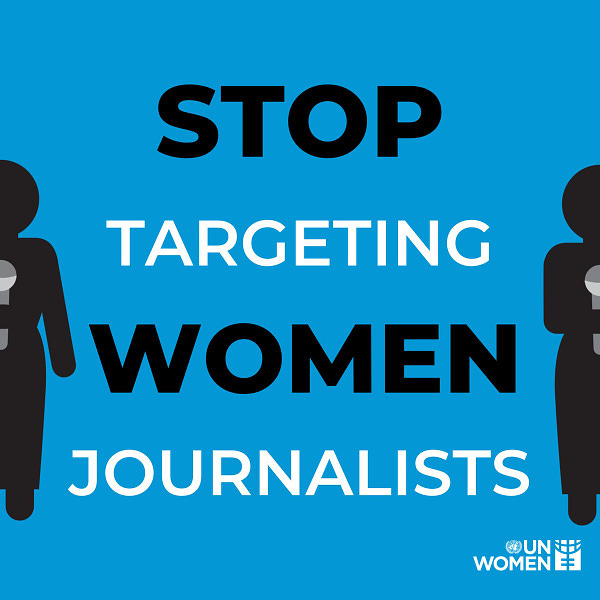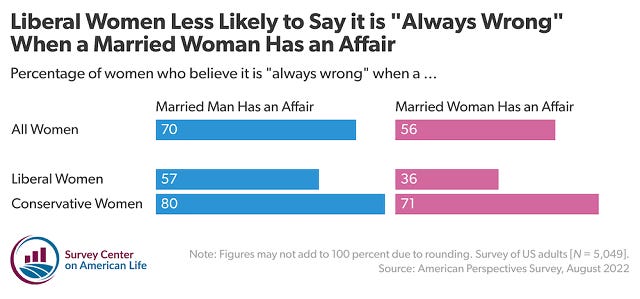Welcome to my weekly digest for November 4, 2022.
For new subscribers, this contains a roundup of my recent writings and podcasts, as well as links to the best articles from around the web this week. You can control what emails you get from me by visiting your account page.
For new paid Subscribers - thank you! - click over for instructions for accessing the Knowledge Base.
Andrew Tate on Islam and Christianity
Andrew Tate, the controversial men’s figure I wrote about in August, has converted to Islam. I hate to be cynical, but the redemption turn is a by now standard part of the story arc of people in this space.
Someone tweeted a clip of an interview with Tate talking about his conversion, including some thoughts on Christianity. I have transcribed some key passages.
I was born in a Christian country and I was raised as a Christian. I’ve always been very respectful of Islam. It’s become more and more obvious to me, and more and more pertinent, that Islam is the last religion on the planet….For me, it feels like the last religion on Earth. I feel like there’s no other religion. People say, “Why did you convert?” I say, I don’t think of it as a conversion. It’s almost like I knew God was real, and now I’ve become religious.
So you were religious before? How? Christian. What does Christian mean? Like, who’s not a Christian? You go to Christian nations, everyone says they’re Christian, but look at how they’re living their lives. Go into the average church. Is anyone actually fearful of God - anybody? No. The girls are out on Saturday night drinking, then they turn up to church because their parents made them. There’s no substance to their religion.
Also, Islam very closely reflects my personal beliefs. In my personal life I learned that if you don’t have standards, and if you’re not a strong person who’s prepared to defend his ideas, you’ll get crushed. If we look at most religions in the world today, which are not prepared to defend their ideas, what’s happening? They’re just getting crushed. Now we have “Christianity” as an idea that has basically said, “We can’t set any firm rules because people will just quit.” So instead let’s make it so easy to be a Christian that nobody has to put any effort in. And then accept everybody no matter what. And then hopefully we can keep the church’s doors open.
That’s not God to me. God to me is strong. God to me is something to be feared. God is someone people are afraid to mock. God is someone you have to go out of your way to prove something to. God to me has red lines. God to me represents the Islamic faith. The Christian God to me - I don’t see God. I don’t see anything there.
I have a few observations about this:
Tate, like even many raised in the church, fundamentally misunderstands Christianity and the gospel. Christianity is not about us proving something to God. It’s about what God has already done for us. God does accept anyone who turns to him just as they are. Some people just can’t wrap their head around that.
Tate sought out a religion that aligned with his own personal gospel of self-help and self-achievement. Or at least he believes it aligns with it.
Tate is correct to note the smallness of God in American Christianity. Tim Chester described what he called the “4 Gs” of God: God is great. God is good. God is gracious. God is glorious. My observation has long been that in evangelicalism, God is very good and very gracious, but he doesn’t seem to be all that great and certainly isn’t very glorious.
Tate is correct that most of Western Christianity has extremely low standards for its members, and those members are often fairly conformed to the world.
I do think a small idea of God and low standards play a role in why American Christianity doesn’t speak to men. And why a growing number of men seem to be turning to more robust, demanding Christian traditions like Eastern Orthodoxy. But if you are wedded to the idea of self-help and self-salvation, ultimately you will not become a Christian.
I am surprised that there have been so few people in the online men’s world that have converted to Islam. Other than among American blacks, I don’t see a lot of conversions there. The conversions I see are typically into some ultra-trad Orthodoxy or Catholicism, as with Roosh Valizadeh. They are much more likely to LARP as neopagans than to look at Islam, even thought the character of Islam does superficially map to their ethos better than Christianity. I guess it goes to show that culture and civilization matter. The English language online men’s world is overwhelmingly Westerners. They are attracted to Western religions like Christianity or paganism rather than non-Western religions like Islam.
Related: This review of Nina Power’s book What Do Men Want provides interesting insight into the draw of the dissident right. I don’t really follow this Med Gold character, but this piece is very direct, politically incorrect, and would very much appeal to an unhappy younger man.
You might want to read that review in the context of a tweet this week from the United Nations.


So 89% of the journalists who were killed last year were men, but the UN’s response to this is to “stop targeting women journalists.”
Or look at this IFS piece about how women are much more likely to say that’s wrong for a man to have an affair than it is for a woman to have one.
Only 36% of liberal women think it’s wrong for a woman to have an affair. But even the bulk of them think it’s wrong for men to have an affair.
It’s not surprise to me that online men’s movements which completely reject things like this have a powerful draw to younger men.
New Content and Media Mentions
Mere Orthodoxy ran a big piece about an example of the negative world in Australia. It’s always nice when someone says explicitly that you’ve “been vindicated.” Rod Dreher also blogged about this.
A big Religion News Service review of Tim Keller’s new book on forgiveness also links to my three worlds piece.
This Federalist piece about a “Covid amnesty” also mentions me.
New this week:
What Is Credibility? (paid only). I look at the different ways to think about credibility, and note that in today’s society, being “credible” is too often a synonym for giving asset to various ideologies.
My podcast this week looks at the question of what is an evangelical. I think the social science view of treating American Protestants who aren’t either mainliners or in the black church as evangelicals is the most useful approach. Paid subscribers can read the transcript.
At American Reformer, Rebekah Curtis asks what women really want.
You can subscribe to my podcast on Apple, Google, or YouTube.
Best of the Web
That Game of Thrones anti-porn video I mentioned last week has already racked up another 800,000 views since then.
Novum: The social recession by the numbers
The Fitzstack: Battle of the Sexes Revisited
Institute for Family Studies: New Research on Cheap Sex and Marriage Chances - Argues that promiscuity doesn’t have a long term effect on whether or not someone ultimately gets married. NB: multiple sex partners for women is correlated with the probability of divorce, however (different study).
The Observer (UK): Experts fear rising global ‘incel’ culture could provoke terrorism - The incel group is the one part of the manosphere that has actually spawned violent acts.






I agree with all that was said about Christianity and Islam. But I'm also going to throw out a theory that relative to Christianity, Islam isn't very well-adapted to win converts as a minority religion. Which we would expect to be the case, based on simple history, but there are a few things I notice as possible mechanisms of this.
For one, Islam objectively has a more difficult apologetics task. It's just harder to suspend disbelief that, of the world's religions, it has the strongest case for itself (this is of course even more true of Neo-Paganism, which is one reason it will always be just a LARP).
If you haven't ever tried to read the Quran, I recommend doing so, because it's enlightening. Mainly in how hard it is to read and take anything away from, and how unintuitively it's organized. Now, large sections of the Bible are hard to read, but also large sections of it (e.g. Genesis, the Gospels) are easy enough for a person of middling intelligence to read, at least if you skip over the genealogies. And in fact, among Muslims, reading the Quran is not a very well-established practice, though there is this strange tradition of "reciting the Quran" in the original Arabic, without comprehension, even among people who don't speak Arabic at all.
What all this means is that practice of Islam is more dependent on a supportive and reinforcing surrounding community, more dependent on imams. Though apparently, at community reinforcement, it is very good, probably better than Christianity. It doesn't work as well as a religion that you discover largely for yourself and choose to follow.
For the record, I also think that this is something Catholicism is bad at relative to American-style individualistic Protestantism (as opposed to State Church Protestantism), and it's why Protestantism is displacing Catholicism in Latin America. Catholicism does OK if it can convincingly serve as the One True Church, but as a single option on a large menu of Christian options, it's not very good at convincing people to come aboard. The only group it really manages to capture is a certain type of trad intellectual that the current Pope is committed to alienating (though that nonetheless is heavily overrepresented among conservative intellectual leadership). As EO becomes a more viable and less alien option in the West, I expect Catholicism's competitive niche will get even smaller.
The problem with easy believe ism is exactly this